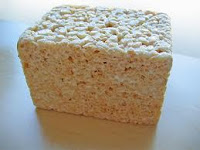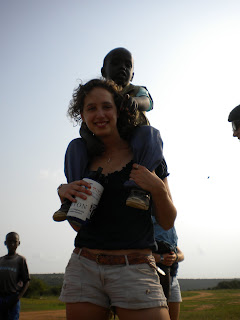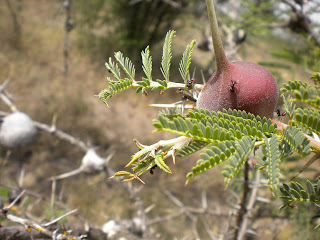Waking up and finding yourself in the middle of a workweek at Mpala is somewhat akin to waking up and finding yourself in Groundhog Day.
 |
| Groundhogs. |
Every morning begins with the exact same breakfast, and since we’re on the equator, every evening begins with sunset at the exact same time (6:35 PM), regardless of the season. Two weeks ago, my roommate woke up on Thursday utterly convinced that it was Tuesday. I think she just spent the time in between on autopilot.
After that incident, I’m determined to have at least one different adventure every weekend, if for no other reason than to stop the weeks from blending into one another as much as the days (well, and also so that I have things to write about here). I was feeling good this weekend, though, so I pushed myself and had two.
My first adventure of the weekend was one I had been trying to have ever since Mark and Jon, a pair of New Zealanders, arrived at Mpala a week and a half ago. Because of their accents, Mark and Jon would have been popular even if they were just normal researchers. But Mark and Jon were no mere researchers. They had been hired by one of the projects at Mpala to fly around in a helicopter capturing gazelles with a net gun so that the gazelles could be examined and tagged.
 |
| Hired guns. Jon on the left, Mark on the right. |
For the gazelles, this process must be like an alien abduction. Imagine. You’re standing peacefully in a field when suddenly a mysterious aircraft descends from the sky, hovers for a moment, shoots you, and winches you up into the air. The craft carries you along for a bit before dumping you among a bunch of unfamiliar beings, who subject you to the most thoroughly invasive examination conceivable. After taking samples of your blood, hair, and stool, measuring your antler and (if, unfortunately, you happen to be male) testicle size, injecting you with a syringeful of liquid (an anti-parasitic), and shoving an electronic tag through your ear, they return you, dazed and woozy, back home, where, I imagine, you spend the rest of your life trying to find someone who believes your story.
 |
| Collecting a stool sample. If you don't release voluntarily, then yes, they go in after it. |
For the humans, this process meant that Mark and Jon had a helicopter, and that if they liked you enough, you might be able to go up in it.
Mark and Jon therefore bypassed simple popularity and proceeded directly to near-celebrity status at Mpala. Nevertheless, by the evening before Mark and Jon’s Sunday departure, only the four researchers most closely involved with the gazelle project had managed to score a trip. Fortunately for me, my roommate persevered where most had given up. Three hours and several Tuskers into Mark and Jon’s goodbye party Saturday night, she got Jon to crack.
 |
| Tuskers are truly elephantine, containing 50% more beer than most American bottles. Jon really didn't stand a chance. |
And so Sunday morning, I got to tag along for adventure #1.
Adventure #2 happened a few hours later, when I went to go help someone with field research.
 |
| See the twelve-year-old boy in the baseball cap? That's me. |
Remember how a few posts ago I mentioned my promise to my mom not to drive in Kenya?
 |
| Sorry. |
I couldn’t turn down the offer of a free driving lesson after we finished in the field. The car was one of the gems reserved for undergraduates: a thirty-year-old stick shift with a door that didn’t close, a trunk that didn’t open, a windshield that got grimier when you wiped it, and rust spots wearing through the floor to reveal the road beneath, and driving it across the highlands was absolutely terrific.
Driving one of these things is like trying to play Mario Kart on a glary screen while sitting in a massage chair with all of the cushioning removed. You’re shaking too much to have a realistic chance of following the road and avoiding obstacles even if you could see clearly, so you just hang on, steer instinctively, and hope you don’t fall off the edge. It’s enormous, enormous fun!
Look on the bright side, Mom. At least I didn’t fly the helicopter.





































